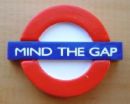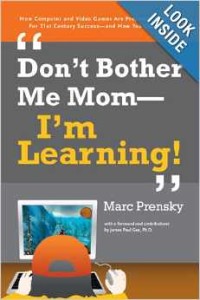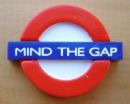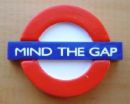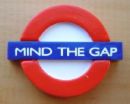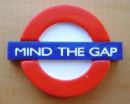 Major leap forward in understanding humanity and its future,
Major leap forward in understanding humanity and its future,
April 21, 2007
John Clippinger
As a long-time admirer of Kuhn's concepts on paradigms and how they shift (“The Structure of Scientific Revolution” I really appreciate any thought leader that puts us on the cusp of such a shift. John Henry Clippinger is there.
I will begin with his conclusion: we are in the process of a “Big Bang” in human identity that shifts us away from organizations and nationalities and races and religions, and toward the realization that we are all “one” in terms of fractional variations of the same DNA, and hence, the world is going to start to revolve around the human end-users, not the organizations that turned them into slaves, amoral components of the industrial system, or mindless fundamentalists party to intolerant religions. For a sense of how the industrial era introduced evil by killing the role of kinship in trust, see Lionel Tiger's “The Manufacture of Evil.”
In my view, this is one of three really great books on the coming revolution in human organization. The other two are Max Manwaring's “The Search for Security” and Philip Alott's “The Health of Nations.” As Alott says, we took a wrong turn at the Treaty of Westphalia, and the world is long over-due for a return to localized kinship and global responsibility.
Those who favor the transpartisan transformational model of earnest and honest elections and engaged citizenry must read this book. The author opens with a long discussion of why it is relationships that matter, not transactions. Indeed, I am reminded of Margaret Wheatley and Esther Dyson–make the connections, don't worry about critical mass.
I learn the term “social physics” for the first time, and read again about reciprocity (Tom Atlee taught me about reciprocal altruism). The author disputes the idea that violence is a given, and joins Jonathan Schell (“The Unconquerable World”) is stating that force is no longer a means by which to gain one's will.
The middle of the book discusses both the threat of technical progress when combined with more failed states, and the promise of digital modeling for accelerating our understanding and testing new paths forward. The author points out that we have no more than 20 years, having wasted the last six, with 2000-2025 being the tipping point period during which we can either go toward stable convergence or hyper-instability and cascading catastrophe.
Brilliant quotes on how the military must shift to soft preventive and remedial measures (General Al Gray, USMC and I called this “peaceful preventive measures in 1988), and how “Brute force is about to be rendered obsolete” at the state level (while flourishing at the gang level).
The author relates his thinking to terrorism in a very useful way, conceptualizing terrorism as a form of non-state parasite eating away at its host, and able to be more entrepreneurial than its bureaucratic adversaries, constantly changing the rules of engagement and winning the key terrain of the minds of the population, using perception in lieu of truth.
The heart of the book is on page 39: “But rather than being treated as peripheral to a primary military mission, well-articulated warfare doctrine and practices for the information, cognitive, and social domains could significantly reduce the need for more traditional methods of influence and control.” Robert Garigue, RIP addresses this in his technical preface to my third book, “Information Operations,” and I am writing my fifth book on how digital natives, serious games, and the way of the wiki are making our military obsolete and unaffordable.
The author attributes the US failure in Somalia (and one would add, Afghanistan and Iraq) to a complete lack of local knowledge and particularly knowledge about language, kinship, and the role of religion.
Key quote on page 44: “It would appear that the Americans and the Israelis are virtually alone in the world in not realizing that the rules and weapons of war have changed.”
The book draws to a conclusion with lengthy discussions of how the complexity of social networks both define the size of one's brain, and the potential success and prosperity of the collective. Language is described as “social grooming” (hence one must be concerned when fundamentalists and extremists hijack the language). The author cites Shakespeare in suggesting that the inability to comprehend complex social networks is at the root of many misunderstandings and attendant tragedies. My first book, “On Intelligence” points out how the US Intelligence Community, a $60 billion a year endeavor, is utterly incompetent at understanding ideas, minds, individual, groups, clans, gangs, and tribes. They are optimized for counting THINGS.
Notable observation that tracks with Michael O'Hanlon's research: when women are in charge, collaboration flourishes.
Long discussion of trust and reputation, listing and discussion of seven types of leadership: authoritarian, exemplary, visionary, gatekeeper, truth teller, fixer, connector, and energizer.
Fairness is the balance point of society.
Cites Michael Vlahos, one of my personal intellectual heroes, on how the radical Islamic movement is a study in the failure of group identity and the failure of the group's “story” to adapt and prosper.
Lists and discusses Cameron's seven laws for digital trusted identity (OSS automatically destroys all digitally signed messages that demand registration before one can respond–that stupid technology is NOT part of the answer).
Engagement, not isolation. The books ends quite properly with praise for STRONG ANGEL, pioneered by Eric Rasmussen and Dave Warner, and suggests that the end game is going to be when we can engage everyone, in their own language, in their own identity terms, in the greatest story YET to be told, that of creating heaven on earth.
I totally respect this book. It is a KEY building block for moving forward with an Open Source Agency and a global free online public education as public diplomacy endeavor. It validates my view that we need a reality based Earth Game with embedded reality-based budgets, immediately. See Medard Gabel, whom I hope will develop such a game.
The Structure of Scientific Revolutions
The Manufacture of Evil: Ethics, Evolution and the Industrial System
The Search for Security: A U.S. Grand Strategy for the Twenty-First Century
The Health of Nations: Society and Law beyond the State
The Unconquerable World: Power, Nonviolence, and the Will of the People
Information Operations: All Information, All Languages, All the Time
On Intelligence: Spies and Secrecy in an Open World
Global Inc.: An Atlas of the Multinational Corporation
Energy, Earth, and Everyone
Where to find 4 billion new customers: expanding the world's marketplace; Smart companies looking for new growth opportunities should consider broadening … consultant.: An article from: The Futurist
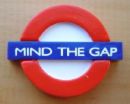 Click Here to Vote on Review at Amazon,
Click Here to Vote on Review at Amazon,
on Cover Above to Buy or Read Other Reviews,
I Respond to Comments Here or There
 One of Two MUST READS For Any Social Activist,
One of Two MUST READS For Any Social Activist,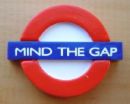 Click Here to Vote on Review at Amazon,
Click Here to Vote on Review at Amazon,

